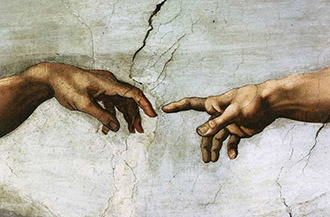What Does It Mean to Be Human?
Novels That Illumine the Mystery of Incarnation
 Philosophy, religion, science, and law all struggle with the question of what we really mean when we call ourselves human—or decide, with terrible consequences, that others are less than human.
Philosophy, religion, science, and law all struggle with the question of what we really mean when we call ourselves human—or decide, with terrible consequences, that others are less than human.
Christianity has always maintained that our humanity derives from our being created in the image and likeness of God. Saint Irenaeus declared in the 2nd century that “the glory of God is a human being fully alive”—but what does that mean?
Does our humanity depend on our capacity for language, or for love? Is it defined by intellect, memory, or will? What of those who suffer from cognitive impairment or madness, autism, or Alzheimer’s?
What are the implications of the Incarnation of God in Christ for our human life? What do we mean when we say that Jesus was “fully human”?
This course explores those questions and more as presented in recent works of fiction, including Never Let Me Go by Kazuo Ishiguro, The Curious Incident of the Dog in the Night-Time by Mark Haddon, The Speed of Dark by Elizabeth Moon, The Song of Achilles by Madeline Miller, Still Alice by Lisa Genova, and The Wolf Hunt by Gillian Bradshaw.